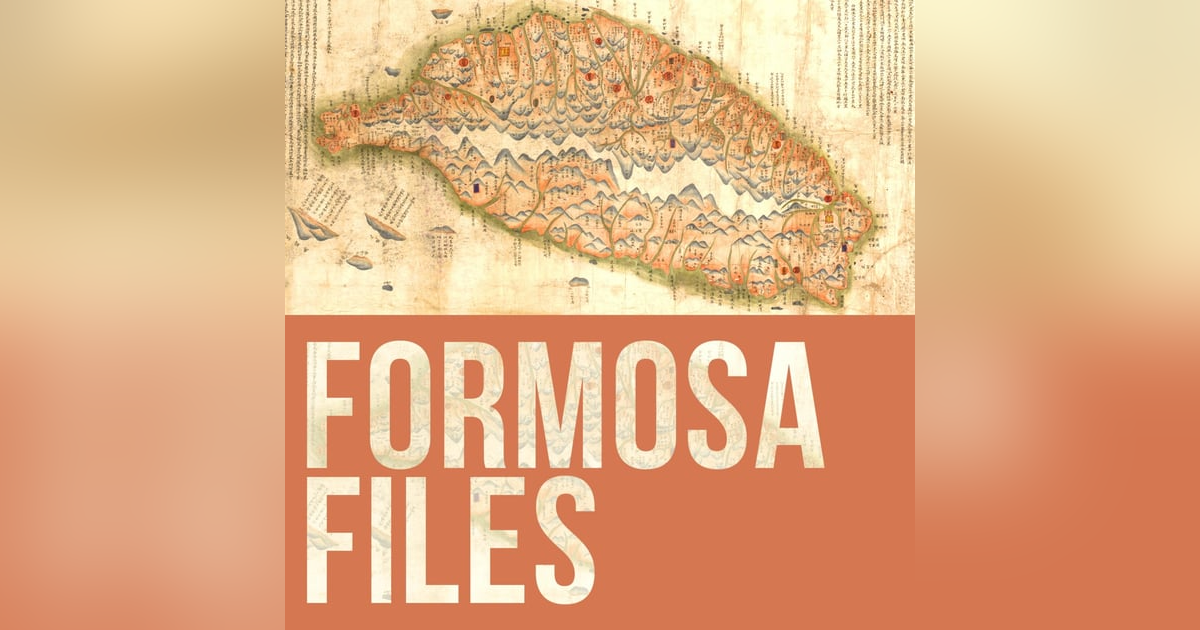
Sign up to get updates from us
By signing up, you agree to receive email from this podcast.
John recently visited the National Radio Museum in Minxiong Township, Chiayi County. This led to some research on the use of radio for propaganda. Whether harnessed by the imperial Japanese military or the CIA, “Free China” or the People’s Republic …
“Blatant sex capital of Asia, where vice is legal and the price is right,” was how one book described Taipei in 1969. Listen as Taipei-based journalist David Frazier takes us through the history of Taipei’s first foreign-oriented red light district, …
This week we're looking at Tokyo, and telling a few tales that connect events in that major world city to people, places, and things in Taiwan. ポッドキャストをお楽しみください!
Writer Wu Zhuoliu 吳濁流 (1900-1976), sadly, never saw Taiwan blossom into a democracy. But he left us with some of the most important works ever written about 20th-century Taiwan. Among these is the autobiography “The Fig Tree”, whose early chapters …
After retreating to Taiwan, the ROC government-in-exile ordered a naval blockade of China, which lasted officially until 1979. In the early years, it was much more aggressively enforced than one might imagine. There were interceptions and attacks by the ROC …
In this special episode, we hear Eryk reading from chapter five of John’s “Taiwan in 100 Books.” The topic is 2-28, an event named after a date: February 28, 1947. It’s usually referred to as the February 28 incident, but …
The last Japanese "holdout" of World War II was an Indigenous Amis Taiwanese named Attun Palalin, but in Japanese Formosa, he was Nakamura Teruo (中村 輝夫). Palalin was one of a group of Indigenous Taiwanese who served in the Japanese …
Among the too many killings committed in the lawless year of 1997 was the execution of 21-year-old Chiang Kuo-ching (江國慶), a soldier convicted of a horrific crime after a forced confession. Chiang went to his death maintaining his innocence, and …
The Taiwan News recently did a feature on Formosa Files (link below), and in the article, this episode from 2021 is mentioned. We thought we'd re-release it for any new "Formosa Filers" who missed it the first time around. This …
Picking up on last week's conversation between the University of Southern California East Asian Studies Center's Li-ping Chen and author Andrew D. Morris -- a very special collaborative double episode with Formosa Files -- we learn more about how North/South …
Formosa Files is delighted to announce a very special episode in collaboration with the University of Southern California’s East Asian Studies Center and the New Books Network! The USC’s Li-ping Chen recently interviewed Andrew D. Morris, the author of a …
Unlike Mahatma Gandhi, fellow Indian pro-independence leader Subhas Chandra Bose advocated taking up arms against the British. WWII presented a golden opportunity for this, and in an "enemy of my enemy" move Bose escaped from arrest in India and headed …
Sadly, the bloodshed and sorrow that began on February 28, 1947 (228) is the foundational story of post-Japanese Taiwan. Wu Zhuo-liu (吳濁流), an ethnically-Hakka poet, writer, and journalist, was born in 1900 and died in 1976, his life effectively spanning …
The Korean War would almost certainly have ended much earlier but for the tricky question of what to do with Chinese POWs. The 21,000 Red Chinese soldiers captured were finally given a choice: go home to China...or go to "Free …
It's 1950 and a war-weary world is at it again. Communist China pours fuel on the conflict in Korea by sending in a quarter of a million soldiers. ROC President Chiang Kai-shek has, from the start, offered to send his …